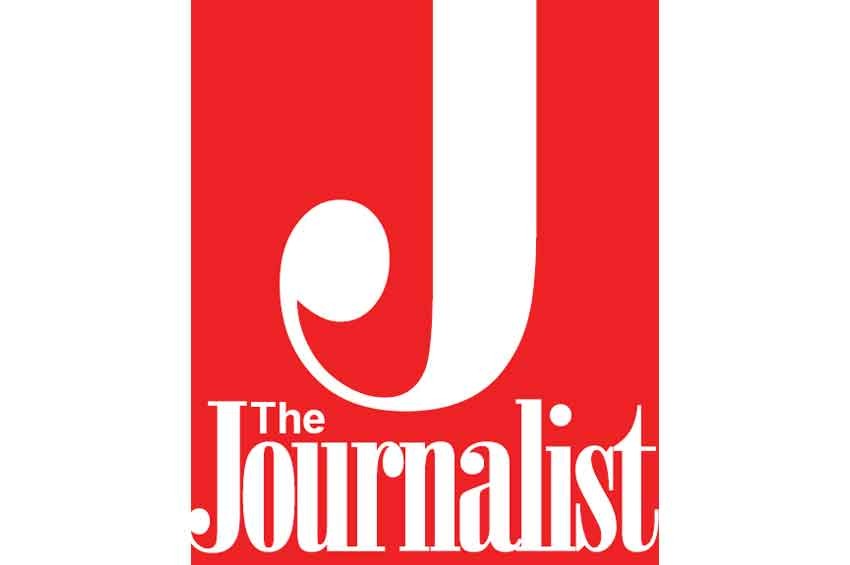Bhutanese policy makers should study global economic reports and come out with required interventions
With the seventh session of the third parliament on, an economy that has been devastated by the pandemic and an increase in the unemployment rate, the talk in town is the economy. While there are qualified economists in the legislative and executive, apart from other agencies, the question to be asked is if our experts ever look at what the world says about Bhutan and then incorporate or implement changes in our policies to improve our rankings in reports such as ease of doing business and economic freedom.
According to the Heritage Foundation, an American research and educational institution and think tank based in Washington, D.C. Bhutan’s economic freedom score is 59.3, making Bhutan’s economy the 94th freest in the 2022 Index. Bhutan is ranked 19th among 39 coun¬tries in the Asia–Pacific region, and its overall score is above the regional average, which is 58.5 but below the world average, which is 60. The report says that economic growth suffered a mild downturn in Bhutan in 2020 but resumed in 2021. It says that led by score increases in rule of law and fiscal health, Bhutan has recorded a 0.9-point overall gain of economic freedom since 2017 and is close to the threshold of the “Moderately Free” category, though the report has categorized Bhutan as “Mostly unfree.” It also states that Bhutan’s modest tax burden supports economic freedom, but the lack of trade free¬dom, investment freedom, and financial freedom continues to hold back progress.
QWhile Bhutan has done fairly well in the first three, the score on Open Markets, assessed through three sub-parameters, Trade Freedom, Investment Freedom and Financial Freedom is very low. Bhutan has scored 40.8, 20.0 and 30.0 respectively in the three.
In countries with good Investment Freedom, individuals and firms would be allowed to move their resources into and out of specific activities, both internally and across the country’s borders, without restriction. Such an ideal country would receive a score of 100 on the investment freedom component of the Index of Economic Freedom.
However, it says that in practice, most countries have a variety of restrictions on investment. “Some have different rules for foreign and domestic investment; some restrict access to foreign exchange; some impose restrictions on payments, transfers, and capital transactions; in some, certain industries are closed to foreign investment. Labor regulations, corruption, red tape, weak infrastructure, and political and security conditions can also affect the freedom that investors have in a market.”
The Index evaluates a variety of restrictions that are typically imposed on investment and points are deducted from the ideal score of 100 for each of the restrictions found in a country’s investment regime. “It is not necessary for a government to impose all of the listed restrictions at the maximum level to effectively eliminate investment freedom. Those few governments that impose so many restrictions that they total more than 100 points in deductions have had their scores set at zero.”
The following are examples of how scores are deducted.
National treatment of foreign investment
• No national treatment, prescreening 25 points deducted
• Some national treatment, some prescreening 15 points deducted
• Some national treatment or prescreening 5 points deducted
Foreign investment code
• No transparency and burdensome bureaucracy 20 points deducted
• Inefficient policy implementation and bureaucracy 10 points deducted
• Some investment laws and practices non-transparent or inefficiently implemented 5 points deducted
Restrictions on land ownership
• All real estate purchases restricted 15 points deducted
• No foreign purchases of real estate 10 points deducted
• Some restrictions on purchases of real estate 5 points deducted Sectoral investment restrictions
• Multiple sectors restricted 20 points deducted
• Few sectors restricted 10 points deducted
• One or two sectors restricted 5 points deducted
Expropriation of investments without fair compensation
• Common with no legal recourse 25 points deducted
• Common with some legal recourse 15 points deducted
• Uncommon but occurs 5 points deducted
Foreign exchange controls
• No access by foreigners or residents 25 points deducted
• Access available but heavily restricted 15 points deducted
• Access available with few restrictions 5 points deducted
Capital controls
• No repatriation of profits; all transactions require government approval 25 points deducted
• Inward and outward capital movements require approval and face some restrictions 15 points deducted
• Most transfers approved with some restrictions 5 points deducted
Financial freedom measures banking efficiency as well as independence from government control and interference in the financial sector. State ownership of banks and other financial institutions such as insurers and capital markets reduces competition and generally lowers the level of available services.
The Index scores an economy’s financial freedom by looking into the following five broad areas; the extent of government regulation of financial services; the degree of state intervention in banks and other financial firms through direct and indirect ownership; extent of financial and capital market development, government influence on the allocation of credit, and openness to foreign competition.
An overall score on a scale of 0 to 100 is given to an economy’s financial freedom through deductions from the ideal score of 100.
A score of 90 means there is minimal government interference. Regulation of financial institutions is minimal but may extend beyond enforcing contractual obligations and preventing fraud.
Bhutan’s score of 30 means there is extensive government interference, with credit allocation extensively influenced by the government. It means that the government owns or controls a majority of financial institutions or is in a dominant position. Financial institutions are heavily restricted, and bank formation faces significant barriers. It also means that foreign financial institutions are subject to significant restrictions.
As mentioned earlier, Bhutan has scored fairly in many areas, but rated very low in significant factors that can attract investment. While the interests of the country should be the foremost consideration, it is important for policy makers and experts to look at such reports and accordingly come up with solutions. As mentioned in the report, economic freedom brings greater prosperity. “The Index of Economic Freedom documents the positive relationship between economic freedom and a variety of positive social and economic goals. The ideals of economic freedom are strongly associated with healthier societies, cleaner environments, greater per capita wealth, human development, democracy, and poverty elimination,” It is through study of such reports that individuals and agencies decide where to invest. The world today is one and these reports are mirrors essential, so that we know ourselves and trim and improve our policies.
With the seventh session of the third parliament on, an economy that has been devastated by the pandemic and an increase in the unemployment rate, the talk in town is the economy. While there are qualified economists in the legislative and executive, apart from other agencies, the question to be asked is if our experts ever look at what the world says about Bhutan and then incorporate or implement changes in our policies to improve our rankings in reports such as ease of doing business and economic freedom.
According to the Heritage Foundation, an American research and educational institution and think tank based in Washington, D.C. Bhutan’s economic freedom score is 59.3, making Bhutan’s economy the 94th freest in the 2022 Index. Bhutan is ranked 19th among 39 coun¬tries in the Asia–Pacific region, and its overall score is above the regional average, which is 58.5 but below the world average, which is 60. The report says that economic growth suffered a mild downturn in Bhutan in 2020 but resumed in 2021. It says that led by score increases in rule of law and fiscal health, Bhutan has recorded a 0.9-point overall gain of economic freedom since 2017 and is close to the threshold of the “Moderately Free” category, though the report has categorized Bhutan as “Mostly unfree.” It also states that Bhutan’s modest tax burden supports economic freedom, but the lack of trade free¬dom, investment freedom, and financial freedom continues to hold back progress.
QWhile Bhutan has done fairly well in the first three, the score on Open Markets, assessed through three sub-parameters, Trade Freedom, Investment Freedom and Financial Freedom is very low. Bhutan has scored 40.8, 20.0 and 30.0 respectively in the three.
In countries with good Investment Freedom, individuals and firms would be allowed to move their resources into and out of specific activities, both internally and across the country’s borders, without restriction. Such an ideal country would receive a score of 100 on the investment freedom component of the Index of Economic Freedom.
However, it says that in practice, most countries have a variety of restrictions on investment. “Some have different rules for foreign and domestic investment; some restrict access to foreign exchange; some impose restrictions on payments, transfers, and capital transactions; in some, certain industries are closed to foreign investment. Labor regulations, corruption, red tape, weak infrastructure, and political and security conditions can also affect the freedom that investors have in a market.”
The Index evaluates a variety of restrictions that are typically imposed on investment and points are deducted from the ideal score of 100 for each of the restrictions found in a country’s investment regime. “It is not necessary for a government to impose all of the listed restrictions at the maximum level to effectively eliminate investment freedom. Those few governments that impose so many restrictions that they total more than 100 points in deductions have had their scores set at zero.”
The following are examples of how scores are deducted.
National treatment of foreign investment
• No national treatment, prescreening 25 points deducted
• Some national treatment, some prescreening 15 points deducted
• Some national treatment or prescreening 5 points deducted
Foreign investment code
• No transparency and burdensome bureaucracy 20 points deducted
• Inefficient policy implementation and bureaucracy 10 points deducted
• Some investment laws and practices non-transparent or inefficiently implemented 5 points deducted
Restrictions on land ownership
• All real estate purchases restricted 15 points deducted
• No foreign purchases of real estate 10 points deducted
• Some restrictions on purchases of real estate 5 points deducted Sectoral investment restrictions
• Multiple sectors restricted 20 points deducted
• Few sectors restricted 10 points deducted
• One or two sectors restricted 5 points deducted
Expropriation of investments without fair compensation
• Common with no legal recourse 25 points deducted
• Common with some legal recourse 15 points deducted
• Uncommon but occurs 5 points deducted
Foreign exchange controls
• No access by foreigners or residents 25 points deducted
• Access available but heavily restricted 15 points deducted
• Access available with few restrictions 5 points deducted
Capital controls
• No repatriation of profits; all transactions require government approval 25 points deducted
• Inward and outward capital movements require approval and face some restrictions 15 points deducted
• Most transfers approved with some restrictions 5 points deducted
Financial freedom measures banking efficiency as well as independence from government control and interference in the financial sector. State ownership of banks and other financial institutions such as insurers and capital markets reduces competition and generally lowers the level of available services.
The Index scores an economy’s financial freedom by looking into the following five broad areas; the extent of government regulation of financial services; the degree of state intervention in banks and other financial firms through direct and indirect ownership; extent of financial and capital market development, government influence on the allocation of credit, and openness to foreign competition.
An overall score on a scale of 0 to 100 is given to an economy’s financial freedom through deductions from the ideal score of 100.
A score of 90 means there is minimal government interference. Regulation of financial institutions is minimal but may extend beyond enforcing contractual obligations and preventing fraud.
Bhutan’s score of 30 means there is extensive government interference, with credit allocation extensively influenced by the government. It means that the government owns or controls a majority of financial institutions or is in a dominant position. Financial institutions are heavily restricted, and bank formation faces significant barriers. It also means that foreign financial institutions are subject to significant restrictions.
As mentioned earlier, Bhutan has scored fairly in many areas, but rated very low in significant factors that can attract investment. While the interests of the country should be the foremost consideration, it is important for policy makers and experts to look at such reports and accordingly come up with solutions. As mentioned in the report, economic freedom brings greater prosperity. “The Index of Economic Freedom documents the positive relationship between economic freedom and a variety of positive social and economic goals. The ideals of economic freedom are strongly associated with healthier societies, cleaner environments, greater per capita wealth, human development, democracy, and poverty elimination,” It is through study of such reports that individuals and agencies decide where to invest. The world today is one and these reports are mirrors essential, so that we know ourselves and trim and improve our policies.
Tandin Wangchuk
Thimphu
(Edited for space and clarity)
Thimphu
(Edited for space and clarity)












